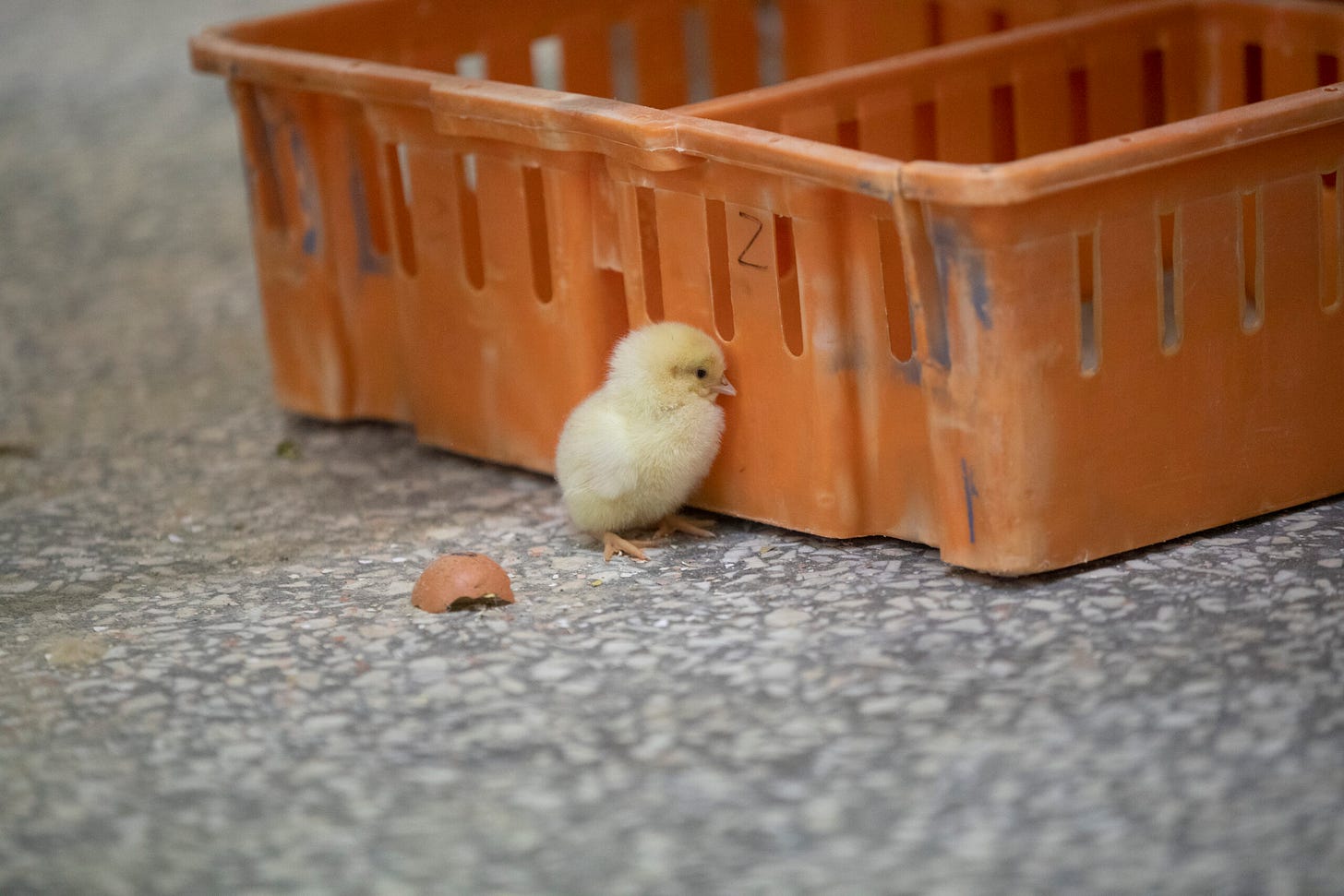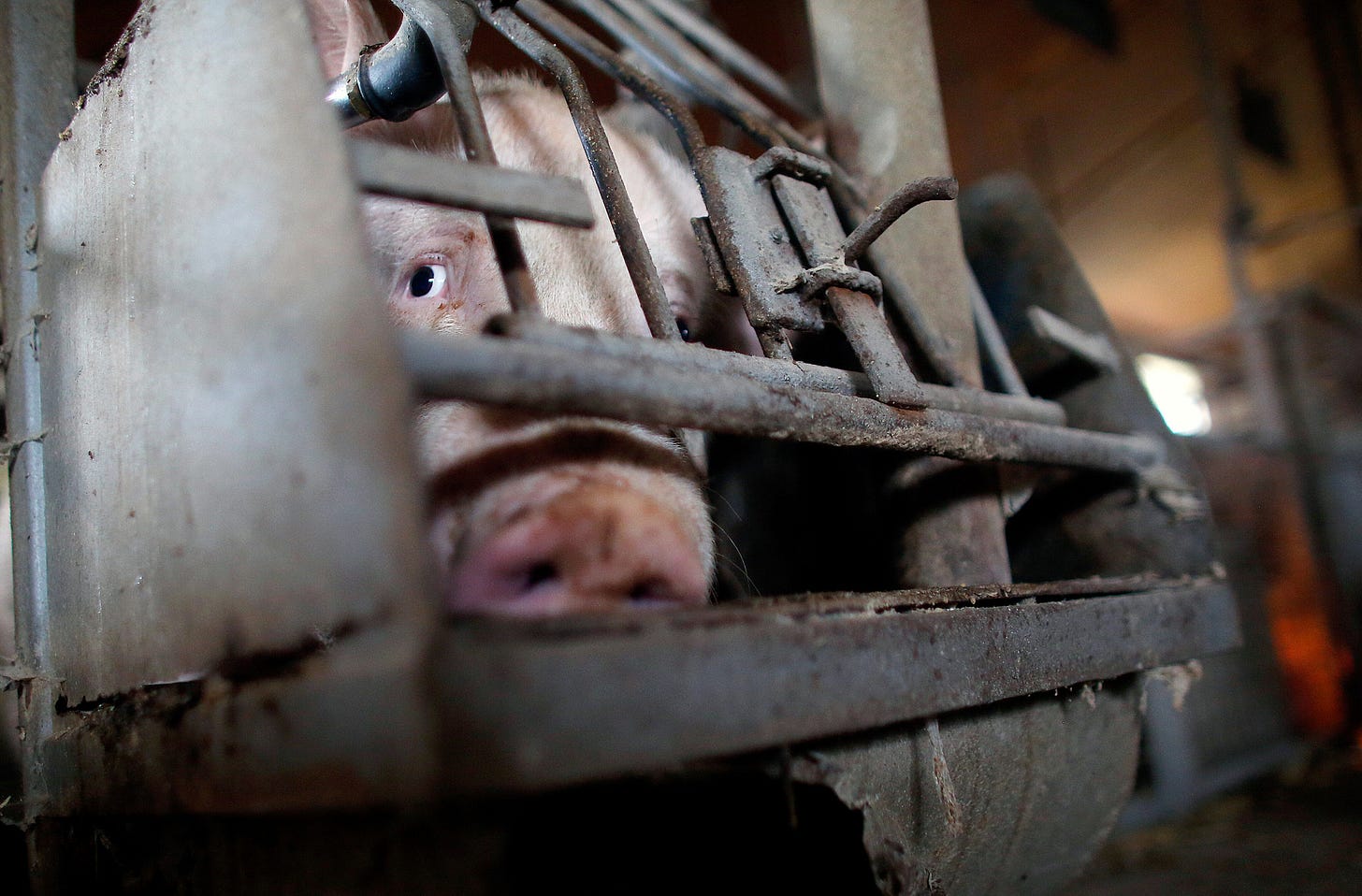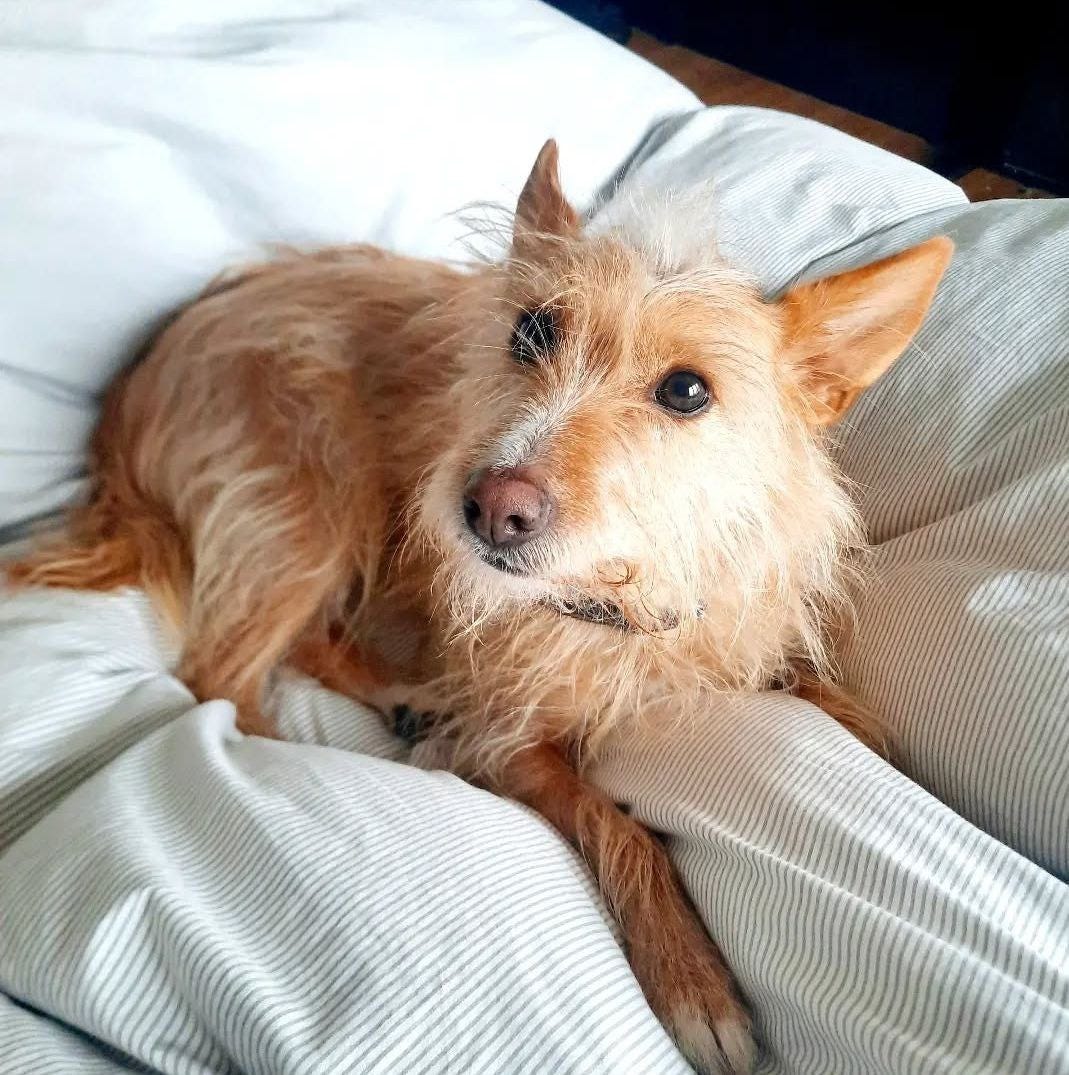What We Miss When We Talk About Animal Cruelty
Not all animal suffering is loud or visible — much of it hides in the smallest, most personal vulnerabilities.

When we think about the suffering of farmed animals, we often focus on their external conditions: cramped cages, brutal transport, and terrifying slaughterhouses. These are undeniably horrific, but what if we need to zoom in much closer to grasp the true extent of their suffering? What if it isn’t just about what happens to farmed animals, but about their unique ways of experiencing it?
We often forget to consider their inner world, the uniqueness of their perception, their sensitivities, their individual weaknesses and vulnerabilities — factors that fundamentally influence how they experience their reality. What might seem like a negligible detail to us means everything to the victims. Dismissing these nuances as unimportant is to overlook the depth of their pain.
Examples:
Just as a person with extreme noise sensitivity finds crowded spaces unbearable, a cow with heightened sensitivity to sound will experience the constant screeching and shoving in factory farms as even more distressing than other cows do.
Just as a person with claustrophobia feels panic in a packed elevator, a pig with a strong need for movement will experience the confinement of a gestation crate as even more unbearable than other pigs.
Just as some people are more prone to experiencing intense homesickness than others, a highly social sheep will find the forced separation from her herd even more traumatic than other sheep.
Just as a person with tactile hypersensitivity experiences severe discomfort from textures that most people tolerate easily, a chicken with injured or delicate skin will experience the constant rubbing against other birds in a crowded farm as particularly painful.

It’s not as if the unspeakable horrors of the animal agriculture industry are in any way justifiable, even when inflicted upon healthy and mentally resilient animals. However, it’s important to acknowledge that, like humans, other animals can also have sensory sensitivities, anxieties, allergies, illnesses, depression, phobias, and disabilities — and that such vulnerabilities can drastically intensify what is often already an inherently horrific experience.
Situations that would be merely challenging or painful for some animals can, for others, mean maddening frustration, excruciating agony, and sheer panic. What is hard to bear for some is utterly unbearable for others.
“I no longer look at animals at the species level. I look at them as individuals, and I think about them as creatures with their own individual weather systems guiding their behavior and informing how they respond to the world. And I really believe that this has made me a more curious and a more empathetic person.”
When someone is grieving, we tread gently
When we interact with other humans, we’re often deeply attuned to individual sensitivities — and we adjust our compassion accordingly. We speak softly around those with anxiety, offer special meals to those with allergies, and take extra care with children, the elderly, or those who are ill. If someone has trouble walking, we slow down or offer an arm. If someone is grieving, we tread gently. This kind of sensitivity-based compassion is considered basic decency.
Yet when it comes to farmed animals, we erase the individual almost entirely. A pig who startles easily, a chicken with an injury, or a cow prone to panic is not seen as someone needing special care, but as a unit in a system — expected to endure whatever conditions we impose, no matter how terrifying or painful they may be.
“Now what? Are we supposed to hire a therapist for every chicken?”
You might be wondering what point I’m trying to make here. Should animal agriculture really be expected to account for all these details? To carry out physical and psychological assessments for every animal? To treat them as individuals with unique needs and sensitivities?
Of course I don’t expect this to happen — I’m not naïve. An industry where 99% of farmed animals live on factory farms has no room for individual care. The system doesn’t, and frankly can’t, cater for these differences in any meaningful way. But that doesn’t mean we should just shrug and accept it. If we have any sense of compassion, the only reasonable conclusion is this: an industry this cruel, incapable of meeting the most basic needs and sensitivities of its victims, shouldn’t exist at all.
We don’t need animal products to thrive — and this article should serve as yet another reminder to truly live by the stance against animal cruelty that so many of us claim to hold. If you believe your own needs and sensitivities deserve to be respected, yet still pay for the industrial exploitation of sentient beings, you’re engaging in clear hypocrisy — the very mindset that has enabled the worst forms of violence and oppression in human history.
Conclusion
Beyond the already immense destruction, the staggering risks, and the systemic exploitation of billions of sentient beings, the individual sensitivities we’ve explored in this article are yet another powerful reason to leave animal products behind.
Just as you wouldn’t force a person with claustrophobia into a locked, windowless room, we shouldn’t subject animals to environments that may cause them immense suffering — especially when we don’t even fully understand what they’re going through. If there’s any doubt, any uncertainty, we owe them the benefit of compassion.

The horrors of the animal industry would be an absolute nightmare even for the strongest and most insensitive beings. We can hardly imagine how incredibly awful it must be to endure such a life in confinement with heightened stress sensitivity, noise sensitivity, fear of blood, or similar conditions.
It’s shocking to see how many people who claim to stand for peace and compassion, and to be against needless violence, still justify and actively support this industry. There is no excuse for animal exploitation — not when it’s unnecessary. And if you’re reading this, chances are: it’s not necessary for you.
Choosing to avoid animal products isn’t just a gift to the animals, to the planet, and to future generations — it’s also a gift to yourself. It saves you money, improves your health, and most importantly, gives you a clearer conscience. As John Oberg says: “In a world full of darkness, be a bright spot of compassion.”




So true about how so many seemingly compassionate people have a blind spot when it comes to what they needlessly eat on their plate. It's time for them to wake up and evolve!
Great messaging, Pala. Thank you.